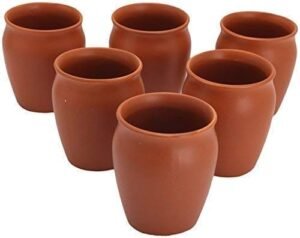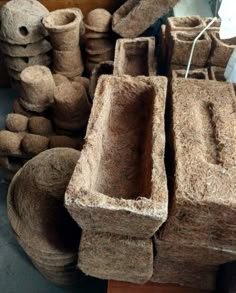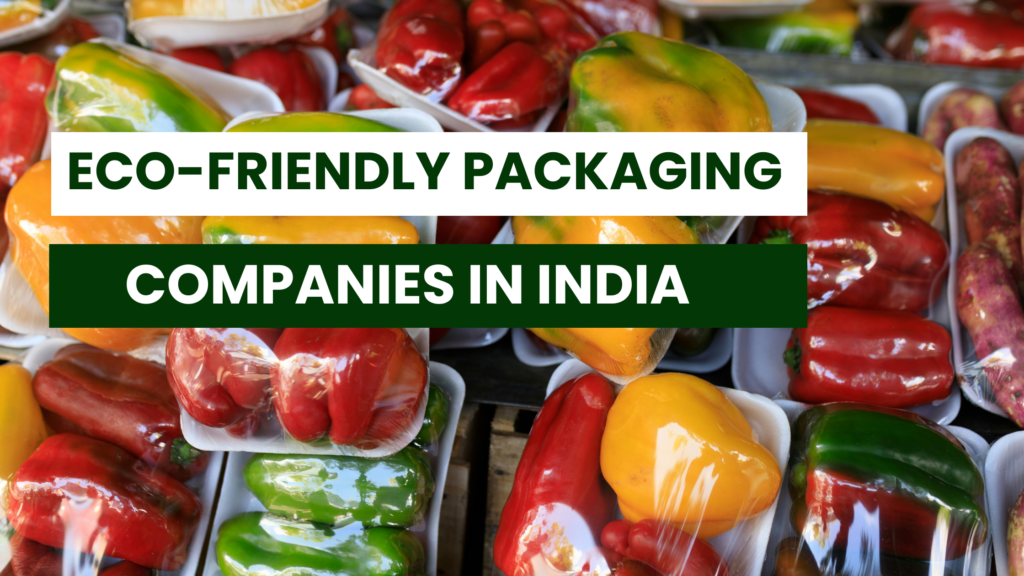Guess what, wrapping products in that brown paper is not eco-friendly packaging. And, slapping a green leaf icon on a shiny, unrecyclable packet does not make it “sustainable”. Eco-friendly packaging is more than just using paper and meaningless green symbols. It is a term that’s often green-washed. However, the scenario is changing now. With the increase in conscious consumerism, the demand for actual sustainable packaging is soaring. And for good reason.
After all, the gravity of plastic pollution is staggering. India alone generates approximately 15.5 million tonnes of plastic waste annually, with packaging accounting for 30% of this waste. Globally, packaging waste contributes more to plastic pollution than even single-use plastic like water bottles. So, the need for eco-friendly packaging solutions is more than urgent.
And India might just be the dark horse in this packaging revolution. After all, traditional Indian practices have always favored sustainable packaging. Be it banana leaves, terracotta jars, or cloth wraps; minimalist and biodegradable were part of Indian culture long before it became cool.
By revisiting these practices and integrating modern innovations, India has the potential to lead the global movement towards sustainable packaging. In fact, the Indian green packaging market is growing at a CAGR of 6.19%. It was valued at USD 11.93 million in 2024 and is projected to reach USD 21.06 million by 2033.
So, let’s unpack the key players in the growing Indian green packaging market. But before that, let’s quickly revisit what exactly eco-friendly packaging is and why every brand should embrace it.
What is Eco-friendly packaging?
In the simplest terms, eco-friendly packaging refers to any packaging that’s not harming the planet. It’s made from eco-friendly packaging materials that are biodegradable, compostable, recyclable, or reusable. It requires less energy to produce and leaves minimal carbon footprint.
It also means the packaging doesn’t contain harmful inks, toxic glues, or mixed materials that are impossible to separate and recycle.

Some common eco-friendly packaging materials include bagasse (sugarcane waste), cornstarch bioplastics, bamboo, mushroom foam, etc. If it disappears back into the earth without a fight, it’s probably eco-friendly packaging.
But it’s not just about materials. True eco-friendly packaging businesses look at the entire chain: sourcing, manufacturing, transportation, and disposal.
Why Should Brands Embrace Eco-friendly Packaging?
Because the planet isn’t the only one that benefits. Shifting to eco-friendly packaging can be incredibly beneficial for your brand too. Whether you’re in fashion, beauty, food, or any other industry, switching to sustainable packaging offers tangible advantages. Here are top 10 reason why it’s totally worth it.
- Consumer trust: Today’s consumers, especially Millennials and Gen Z, prefer brands that care about the planet. Eco-friendly packaging sends a strong message that you’re part of the solution. It can instantly make your brand more appealing to this large and growing audience.
- Cost-saving (eventually): While eco-friendly materials may have a slightly higher upfront cost, they can actually reduce long-term costs. They often take up less space, reduce shipping weight, and minimize over-packaging.
-
Reduces Environmental Impact: Obvious but important: Eco-friendly packaging reduces waste, pollution, and carbon footprint. It usually uses less energy and water to produce, and many options are biodegradable, compostable, or recyclable.
- Marketing goldmine: Brands using eco-friendly packaging materials tell stories that stick. Consumers love sharing unboxing videos — especially if the box isn’t choking a dolphin.
-
Increases Customer Loyalty: Today’s shoppers don’t just buy products—they buy experiences and values. If they know your packaging won’t end up harming the planet, they’re more likely to return and recommend you.
Eco-friendly Packaging and Indian Culture
Before plastic came into our lives (and landfills), India thrived on eco-friendly packaging materials. Think kulhads (clay cups) for tea, leaf bowls (donas) at weddings, and cotton cloths for wrapping lunch. 
In fact, many of these traditional methods were zero waste, biodegradable, and hyperlocal. Today, as India reclaims its roots through modern innovation, we’re seeing a powerful fusion of tradition and tech.
The result? A new wave of eco-friendly packaging businesses bringing India back to the forefront of sustainable design.
10 Indian Companies Making eco-friendly packaging Simple
Before we jump into the list, let’s acknowledge this: choosing the right eco-friendly packaging businesses can feel overwhelming. Everyone claims to be green, but very few actually walk the talk.
If you’re a brand looking to ditch plastic, here’s a curated list of companies that are making eco-friendly packaging in India a norm. They are offering sustainable packaging solutions that are functional, stylish, and genuinely planet-friendly.
1. Ecoware
Based in Delhi, Ecoware is the first and largest manufacturer of 100% compostable eco-friendly food packaging. Their products are made from bagasse, a byproduct of sugarcane. This eco-friendly packaging material is fully biodegradable, microwave-safe, toxin-free, and decomposes within 100 days in a composting environment.
Their products include everything from plates, bowls and containers to cutlery, cups and straws. Their primary customers are QSR chains, Indian Railways, airport food courts, and healthcare providers. Delhi Metro Rail Corporation (DMRC) replaced single-use plastic with Ecoware at their food courts. Within 6 months, over 5 tons of plastic waste were avoided.
If you’re a food business wanting durable, presentable, eco-friendly food packaging that aligns with health and hygiene standards, Ecoware offers a solid, scalable solution with proven credibility.
2. Pakka Ltd
This company turns sugarcane waste into strong, durable eco-friendly packaging for food service and FMCG industries. They’ve been in the eco-friendly packaging business since before it was cool. Their molded products are perfect alternatives to plastic takeaway containers.
They export to 20+ countries and are pioneers in circular packaging systems. In 2023, Pakka’s compostable tableware replaced over 2,000 tonnes of plastic globally. They’ve also launched a “compost lab” to help brands test the degradability of their packaging in real-world scenarios.
3. BioPak India
A globally trusted name in eco-friendly packaging India, BioPak operates in India through its APAC branch and brings with it a legacy of sustainable innovation. They produce a wide variety of packaging items made from sugarcane pulp, FSC-certified paper, and bioplastics derived from corn starch. Their strength lies in design — elegant, brand-forward packaging that feels premium and doesn’t hurt the planet.
Their products include takeaway containers, coffee cups, lids, cutlery, and trays — all compostable and toxin-free. They’re certified to break down within 120 days in commercial composting conditions. The brand has been particularly effective in helping premium cafes and global food chains shift from plastic-lined cups to lined-paper or bioplastic alternatives.
In India, emerging café chains and artisanal food brands have started choosing BioPak for their eco-friendly food packaging needs to align with global aesthetics and responsible branding.
4. Chuk
 Chuk is one of the frontrunners in eco-friendly packaging India, especially in the food and hospitality sectors. A brand by Yash Pakka (the same company behind compostable tableware), Chuk offers sturdy, microwave-safe, and compostable tableware made entirely from bagasse (sugarcane residue). The products look minimal but are designed with performance in mind—resistant to oil, water, and heat.
Chuk is one of the frontrunners in eco-friendly packaging India, especially in the food and hospitality sectors. A brand by Yash Pakka (the same company behind compostable tableware), Chuk offers sturdy, microwave-safe, and compostable tableware made entirely from bagasse (sugarcane residue). The products look minimal but are designed with performance in mind—resistant to oil, water, and heat.
Chuk has supplied packaging to companies like Chai point, Haveli, tapri, etc. By replacing plastic food trays with their bagasse-based trays, Chuk has helped divert tonnes of plastic from landfills.
The real magic? All of Chuk’s products are designed to degrade within 180 days and are 100% backyard compostable—meaning your biryani bowl won’t sit in a landfill for 500 years. For growing QSRs or cloud kitchens that care about sustainability without compromising on utility, Chuk is a solid bet.
5. BioPackaging Solutions
Specializing in eco-friendly packaging materials for the food and beverage industry, BioPackaging Solutions has gained a reputation for producing low-cost, scalable alternatives to plastic — using bamboo and biodegradable packaging material.
Their products include plates, bowls, lunch boxes, and eco cutlery — all made from renewable and sustainable resources. These are particularly popular at weddings, community events, temple prasad offerings, and corporate cafeterias. The best part? Their products degrade naturally— without requiring industrial composting.
If you’re a food business or an event organizer seeking budget-friendly eco-friendly food packaging that feels earthy and authentic, BioPackaging Solutions might just be your go-to.
6. Greenwrap
Specializing in sustainable paper packaging, the Green Wrap is a family-owned business, offering eco-friendly alternatives to plastic for the food, retail, and e-commerce sectors.
Their product lineup includes paper bags, SOS bags, cotton cloth bags, food containers, double-wall cups, courier boxes, and cake boxes—crafted from recycled and biodegradable materials. These products are widely used by restaurants, cafes, bakeries, and online retailers. The company operates a fully automated sheet-fed paper bag production facility, one of the first in India, with a production capacity of 100,000 finished bags. The Green Wrap’s commitment to sustainability is evident in their use of eco-friendly materials and efforts to minimize their carbon footprint.
If you’re a food business or retailer seeking affordable, sustainable packaging solutions that align with eco-conscious values, The Green Wrap offers a range of products designed to meet your needs.
7. Brown Living
Unlike traditional manufacturers, Brown Living is a marketplace—but it deserves a spot here because of its curated range of eco-friendly packaging materials and suppliers. They source and sell everything from paper mailers, seed paper wraps, kraft tape, to corn starch courier bags. What makes them unique is their strict zero-plastic policy and emphasis on vetting vendors for real sustainability—not just greenwashed claims. 
They work closely with small and mid-sized D2C brands across India—especially in beauty, fashion, and artisanal gifting—offering sustainable packaging kits tailored to the business. Brands like Bare Necessities, The Switch Fix, and Amala Earth have relied on Brown Living’s ecosystem for their plastic-free packaging journeys.
For brands just starting out or testing sustainable options, Brown Living offers flexibility, variety, and a lot of helpful guidance—making them a community-driven partner in the eco-friendly packaging businesses landscape.
8. GreenPod Labs
GreenPod Labs is a gamechanger for anyone dealing with fresh produce. While most eco-friendly packaging players focus on containers or bags, GreenPod works at a cellular level—offering active packaging sachets that slow down spoilage in fruits and vegetables. These sachets are made from biodegradable materials and contain natural plant extracts that inhibit microbial growth and delay ripening.
Primarily designed for agri-exporters, grocery chains, and last-mile delivery startups, their solutions have shown incredible results. Their innovation is huge for reducing food waste, which often ends up in landfills emitting methane.
If you’re in the fresh food supply chain, GreenPod Labs brings science-backed innovation that not only saves food but significantly cuts down on plastic film packaging used in cold chains.
9. Nature’s Solutions
This company has carved a niche in the eco-friendly packaging materials segment by offering hand-made biodegradable packaging products. Nature’s Solutions produces disposable packaging and tableware crafted from natural green leaves and recycled paper, offering a sustainable and eco-friendly alternative to conventional materials.
These products are uniquely handmade by tribal women, who skillfully stitch the leaves using wild grass threads, adding a traditional charm and elegance to food presentation. Sourced directly from the forests, these leaves have been used in India for centuries for dining, thanks to their strength, heat and water resistance, and distinctive natural texture. To enhance durability, especially for buffet use, the leaf plates are reinforced with three-layer corrugated sheets made from waste paper.
The products are not only biodegradable and compostable but also safe for use in ovens, microwaves, and refrigerators. Lightweight yet sturdy, they are leak-proof, antibacterial, and medicinally beneficial, while also supporting rural employment and preserving indigenous craftsmanship.
10. Bambrew
Last but absolutely not least is Bambrew—a rising star in the eco-friendly packaging businesses ecosystem. They create alternatives to single-use plastic using bamboo, seaweed, and banana fiber. Their packaging is not just biodegradable but also strong, shock-resistant, and versatile.
Bambrew is used by large D2C players like Bigbasket, Boat, and Decathlon to reduce their single-use plastic in shipping. They also offer a one-stop solution—design, prototyping, branding, and execution—making them a favorite for fashion and cosmetics brands looking for scalable eco-friendly packaging solutions in India.
Conclusion
Here’s the thing: packaging isn’t going anywhere. But plastic doesn’t have to stay. These eco-friendly packaging businesses are not only redefining logistics and food delivery but also reimagining how we think about waste.
As more sustainable packaging businesses rise, we’ll see smarter, greener, and even prettier ways to wrap our products. With eco-friendly packaging materials becoming more innovative, accessible, and tailored to Indian needs, we have fewer excuses left to cling to plastic.
So, if you’re a brand, the question isn’t should you switch, but how fast can you do it?


